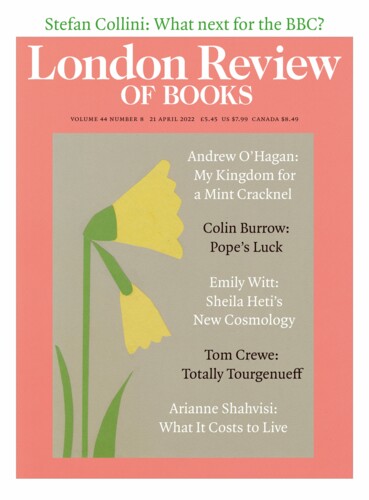The conceptual if not the literal ancestors of most of Britain’s chickens were smuggled into the country disguised as Easter eggs. Their bootlegger was Antony Fisher, a former RAF pilot who had been advised by Friedrich Hayek to make his mark not by getting into politics but by nudging public opinion from the helm of a research institute. Fisher went in search of funds. On a trip to the US, he saw fifteen thousand supersized chickens packed into a single poultry house. He wrapped two dozen fertilised eggs in foil and stashed them in his hand luggage for the return trip.
Arianne Shahvisi
Arianne Shahvisi is a senior lecturer in ethics at Brighton and Sussex Medical School. Her book Arguing for a Better World was published in June 2023.
Sex in the Brain - Arianne Shahvisi
8 September 2022
What’s the difference? Sex in the Brain
Arianne Shahvisi, 8 September 2022
As a teenager, I couldn’t find anyone to play chess with me, so I pored over a small yellow copy of Chess Made Easy and set up games against myself. Mine is the 26th edition of Cecil Purdy and Gary Koshnitsky’s primer, first published in 1942. Returning to it recently, I noticed a brief section towards the end on ‘Women in Chess’. It is often the case, the text...
‘The idea really came to me the day I got my new false teeth,’ George Orwell’s Coming Up for Air begins. Two paragraphs later, we learn that the narrator is forty-five years old. In 1984, Winston is surprised at Julia’s advances: ‘I’m thirty-nine years old. I’ve got a wife that I can’t get rid of. I’ve got varicose veins. I’ve got false teeth.’ And in Keep the Aspidistra Flying, an even younger Gordon Comstock glumly evaluates his life: ‘thirty years old, with twenty-six teeth left; with no money and no job; in borrowed pyjamas in a borrowed bed; with nothing before him except cadging and destitution, and nothing behind him except squalid fooleries.’ It’s not so much an oral fixation as a sign of the times. Teeth were hard to keep, especially if you were poor. In The Road to Wigan Pier, Orwell reads the teeth of working-class people in the industrial north.
Short Cuts: What It Costs to Live
Arianne Shahvisi, 21 April 2022
Erwin Schrödinger is best known for his cat, suspended in a state of being both dead and alive. Less well known is ‘Schrödinger’s paradox’, which describes the apparent contradiction between life and the second law of thermodynamics. The second law rules that the entropy – usually glossed as the measure of disorder – of an isolated system...
Read anywhere with the London Review of Books app, available now from the App Store for Apple devices, Google Play for Android devices and Amazon for your Kindle Fire.
Sign up to our newsletter
For highlights from the latest issue, our archive and the blog, as well as news, events and exclusive promotions.



